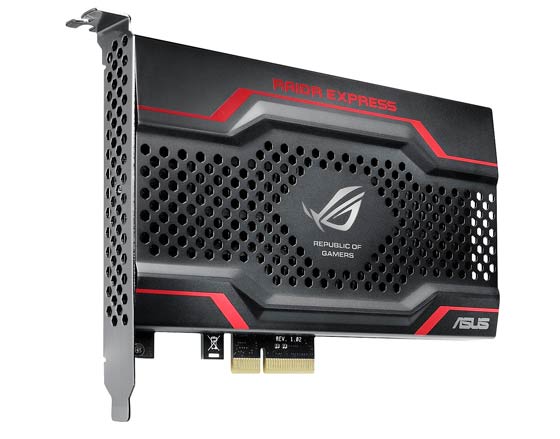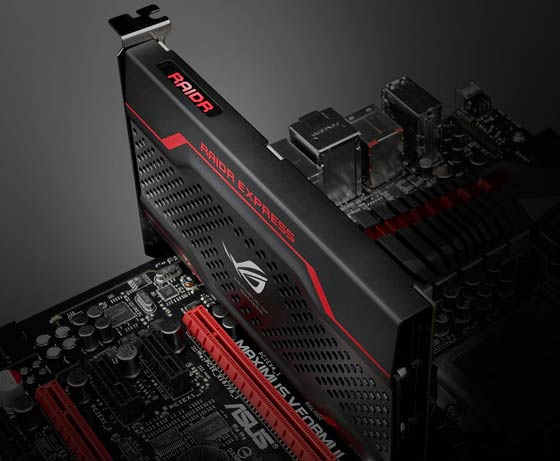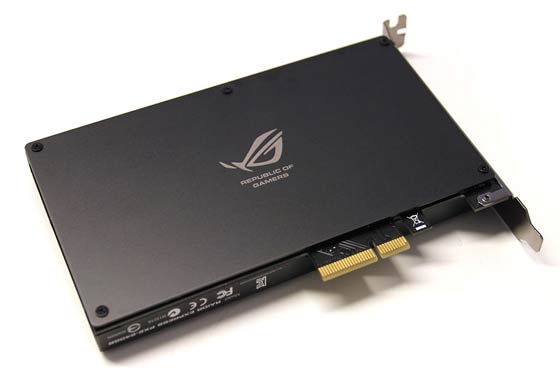ASUS is expected to launch a range of SSD drives under its Republic of Gamers (ROG) sub-brand sometime in May, according to a new report published on DigiTimes today. The SSDs will be part of the ROG Raidr Express range, which we caught a little sniff of at CES, Las Vegas earlier in the year.

PCI Express 2.0 x4 interface
The ROG Raidr is said to deliver “significantly faster data transfer speeds and game loading times than SATA-based SSD storage, thanks to the greater bandwidth of its PCI Express interface”. The “Raidr” name provides a hint to how these new drives will offer better performance than SATA alternatives. The Raidr PCI card contains multiple SSD drives in RAID0 mode and utilises the PCI Express 2.0 x4 interface to eliminate bandwidth bottlenecks reported XBit Labs, during the CES show.

ASUS has officially stated that its new performance storage solution “maintains full compatibility with all major chipsets and operating systems, and can be used as a bootable drive for accelerated PC performance across the board”. DigiTimes explains that the Raidr Express series features a built-in AHCI driver “and supports both legacy and UEFI BIOS systems”. ASUS will also bundle some performance and longevity enhancing software including ASUS SSD TweakIt and ROG HybriDisk.
The DigiTimes sources also reveal that the new drives will feature MLC flash supplied by Toshiba. It is also suggested this business initiative may be strategic for ASUS to gain better purchasing leverage with regard to SSDs.
830MB/s read & 810MB/s write
ASUS has just teased us a little bit more info with the speed statistics of a Raidr Express storage card, “830MB/s read and 810MB/s write speeds” statistics were touted and a new image released by the Nordic ROG team.

We look forward to further official details and to testing these drives when they become available next month.













